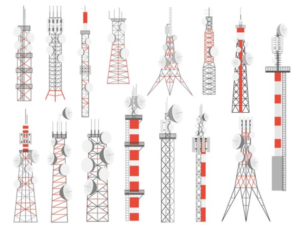Mergers and acquisitions (M&A) have become critical strategic moves for growth and market expansion in the fast-paced telecoms business. Due diligence in telecom M&A deals is complex and requires expert knowledge. Selecting VDR features for the telecom industry features adapted to the specific requirements of the telecom industry is an essential part of optimizing this procedure. Click here

Telecom Mergers and Acquisitions: Recognizing the Role of VDR features for the telecom industry
Due diligence in the telecom business must consider the industry’s unique characteristics, including complex laws, quick technical changes, and massive datasets. The correct VDR features for the telecom industry features improve the effectiveness of due diligence and aid in the overall success of M&A deals.
Protocols for Enhanced Safety:
Confidential data exchange is an integral part of every telecom M&A. Select a VDR that takes precautions against illegal access, such as end-to-end encryption, multi-factor authentication, and granular access limits.
Resources for Instantaneous Cooperation:
In the field of telecom M&A, teamwork is of the utmost importance. Look for VDR capabilities that enable real-time communication tools, allowing stakeholders, including legal teams, financial advisers, and executives, to communicate smoothly within the platform.
Indexing and filing of documents:
When people use communication, they often send and receive large amounts of information.Select a VDR with advanced document organization and indexing tools to help stakeholders quickly find the information they need in massive datasets. This guarantees an organized and productive review procedure.
Friendly User Experience:
To streamline your due diligence, you need a user-friendly interface. Choose a virtual data room (VDR) that has a user-friendly interface, as this will shorten the learning curve and increase efficiency during telecom M&A deals.
Permission Levels That You Set Yourself:
Access needs for different groups should be taken into account. Access rights that can be changed let you share private data with only the right people. Look for VDR capabilities that offer fine control over who may read, change, or download individual documents.
The success or failure of merger and acquisition (M&A) deals might hinge on whether the telecom sector uses the full potential of virtual data rooms (VDRs). Telecom firms may confidently and precisely manage the intricacies of due diligence by prioritizing sophisticated security, collaborative tools, efficient document organization, user-friendly interfaces, and adjustable access permissions. Given the importance of data in telecom M&A, a virtual data room (VDR) equipped with the appropriate functionality is a must.
How to Choose the Right Virtual Data Room Functions in the Telecommunications Industry
In the high-stakes world of telecommunications, where mergers, acquisitions, and strategic alliances influence the industry’s future, the choice of Virtual Data Room (VDR) features becomes an essential option. With the right virtual data room (VDR) tools made for the telecom industry, the due diligence process can be sped up, kept safer, and made more collaborative. Let’s take a closer look at the critical VDR features that make them so useful for deals in the telecom business.
Recognizing the Specific Needs of the Telecommunications Industry
Due diligence in the telecommunications industry must consider the industry’s unique characteristics, including its extensive regulatory requirements, massive data quantities, and quick technical improvements. Features of industry-specific VDRs should allow for simultaneous participation from a wide range of stakeholders and storing large amounts of sensitive data in a secure environment.
Features of a Virtual Data Room That Are Crucial to Telecom Deals
1. Reliable Safety Procedures:
Telecom companies must protect client data. Protect sensitive data during due diligence. This is achievable with enhanced encryption, multi-factor authentication, and fine-grained access controls in virtual data rooms.
Performance and scalability:
VDRs must be scalable without compromising speed to be valid for telecom transactions, which entail massive amounts of data. Quickly uploading and downloading documents, effective indexing and simple browsing across massive data sets are all necessities.
Thirdly, Audit Trail and Compliance Features:
You can’t ignore the rules that apply to your business.Telecom enterprises may easily comply with regulatory standards using virtual data room (VDR) capabilities such as thorough audit trails, compliance checklists, and adaptable reporting functions.
4. Real-time updates and collaborative tools:
Telecom M&A includes several parties operating across regions. Distributed teams may easily communicate and make decisions when using a virtual data room (VDR) with easy collaboration capabilities, including encrypted chat, annotation options, and real-time updates.

Permissions and access levels for users can be modified:
The ability to restrict document access to specific users is essential. Virtual data rooms (VDRs) enable safe and efficient data management in the telecommunications industry by providing granular access controls, role-based permissions, and temporary access rights.
Considering the unique demands of the organization and the complexities of the transaction, it is crucial to align the available features while assessing telecom VDRs. It is essential to evaluate the VDR’s features against the specific needs of the telecom sector.
Conclusion
Choices of virtual data room (VDR) characteristics affect M&A deal success and speed. Telecom firms may simplify and improve due diligence by prioritizing security, size, compliance, cooperation, and individualized access.
FAQ:
Virtual data rooms (VDRs) are more significant in the ever-changing telecommunications industry, which involves mergers, acquisitions, and strategic collaborations. Customized VDR features are needed to make it easier for people in the telecom business to do their jobs, keep data safe, and work together.This FAQ illuminates VDR qualities that assist firms handle the telecom market’s complexities.
Q1: How do I choose a virtual data room?
When choosing a virtual data room, you should think about things like protection, scale, compliance, and tools for working together. Finding a supplier with a proven track record in your business is essential to ensure the VDR meets your transaction standards and delivers user-friendly interfaces for adequate due diligence.
Q2: What is the complete form of VDR in telecom?
The total term of VDR in telecom is “Virtual Data Room.” A Virtual Data Room (VDR) is a safe online space for telecom companies to store and share sensitive documents during business deals like mergers and acquisitions.
Q3: What is a VDR in networking?
It is common practice in the networking industry to abbreviate VDR as “Virtual Device Router” or “Virtual Distributed Router.” It’s shorthand for deploying virtual router instances in a network, which may then provide routing capabilities on demand and at scale.
Q4: Why is VDR important?
Virtual data rooms are crucial for the safe and quick transfer of documents like merger and acquisition paperwork. It preserves data confidentiality, speeds up due diligence, and improves communication among parties, eventually contributing to the success of commercial agreements.
Q5: What is the best virtual data room?
Which VDR is best for you will depend on your needs. When deciding on a VDR, it’s essential to consider security, usability, scalability, and reliability. Intralinks, Merrill, and Firmex are just a few examples of the many suppliers available.
Q6: How do you build a good data room?
A successful data room results from careful planning that begins with finding a trustworthy virtual data room (VDR) provider and continues with installing advanced security measures and assigning individual roles to each user. Make sure the data room is scalable and compliant by tailoring it to the needs of your industry.
Q7: What are the various modules of VDR?
Modules standard to Virtual Data Rooms include file storage and administration, user permissions, collaborative features, audit logs, and report generation. Together, these parts provide a robust system for storing and exchanging information safely.
Q8: What is the difference between LDR and VDR?
The ease of use and level of protection provided by an LDR (Local Data Room) make it stand out from a VDR. VDRs, being cloud-based, offer secure access from anywhere, while LDRs are often location-specific. Additionally, virtual data rooms provide cutting-edge collaboration tools best for distant teams.
Q9: What is VDR activity?
The term “VDR activity” is used to describe the conversations and exchanges that take place in a VDR during a business deal. All data transfer, storage, user access, communication, and other actions related to the due diligence process are included.
Q10: What is the basic principle of VDR?
Virtual data rooms were created to reduce security issues and enhance efficiency when firms stored and shared confidential data. It protects private data and facilitates inquiry collaboration among permitted parties.
Q11: What is VDR security?
The term “VDR security” refers to all the safeguards to ensure that private data is safe within a VDR. Measures such as encryption, secure user identification, access restrictions, audit trails, and compliance with industry standards are implemented to prevent unwanted access and protect data integrity.
Q12: What is the complete form of VDR voltage?
VDR refers to a “Voltage Dependent Resistor” in electrical circuits. It’s a safety feature for electrical circuits that consists of an electronic component whose resistance drops as the voltage increases.

